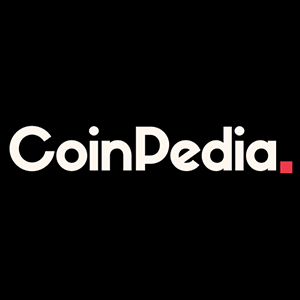Stock Tokenization Unlocks Private Markets: A Revolutionary Leap for Investors
6 min read
BitcoinWorld Stock Tokenization Unlocks Private Markets: A Revolutionary Leap for Investors The financial world is on the cusp of a profound transformation, driven by the innovative power of stock tokenization . Imagine a future where exclusive investment opportunities, once reserved for a select few, become widely accessible. This isn’t just a distant dream; it’s a rapidly approaching reality, as highlighted by influential figures like U.S. Securities and Exchange Commission (SEC) Chair Paul Atkins. His recent comments on CNBC’s Squawk Box have ignited significant discussion, suggesting that this technological advancement is set to democratize private markets and reshape how we think about ownership and investment. What is Stock Tokenization and Why Does it Matter? At its core, stock tokenization involves converting traditional assets, such as shares in a company, into digital tokens on a blockchain. Think of these tokens as digital representations of ownership, imbued with the security and transparency features inherent to blockchain technology. This process isn’t merely about digitizing a certificate; it’s about fundamentally changing the underlying infrastructure of how assets are issued, traded, and managed. Here’s a simplified breakdown of how it works: Asset Representation: A company’s shares are digitized and represented as tokens on a blockchain network. Fractional Ownership: These tokens can be divided into smaller units, allowing for fractional ownership of high-value assets. Smart Contracts: The terms and conditions of the asset (e.g., voting rights, dividend distribution) are embedded within smart contracts, automating processes. Global Accessibility: Once tokenized, these assets can potentially be traded 24/7 on global digital exchanges, transcending geographical and time-zone barriers. The implications of this shift are enormous, particularly for markets that have historically been opaque and illiquid. The Exclusive World of Private Markets: A Challenge to Investment Accessibility Historically, private markets – encompassing investments in private companies, real estate, and alternative assets – have been the domain of institutional investors, venture capitalists, and high-net-worth individuals. These markets offer significant potential for growth and diversification but are often characterized by: High Entry Barriers: Minimum investment amounts are typically very large, excluding most retail investors. Illiquidity: Investments are often locked up for long periods, with limited options for early exit. Lack of Transparency: Information can be scarce, and pricing mechanisms are less clear than in public markets. Complex Processes: Legal and administrative hurdles can be extensive and costly. This exclusivity has long posed a significant challenge to true investment accessibility , creating a divide between those with substantial capital and the everyday investor seeking diverse opportunities. Many promising ventures and valuable assets remain out of reach for the average person, limiting their potential for wealth creation and participation in innovative projects. SEC Chair Paul Atkins’ Vision: Opening Doors The comments from SEC Chair Paul Atkins on CNBC’s Squawk Box are particularly significant because they come from a key regulatory figure. His assertion that stock tokenization will “open up private markets” signals a growing recognition within regulatory bodies of the transformative potential of this technology. This isn’t just a technical discussion; it’s a policy statement that acknowledges the current limitations of private markets and sees tokenization as a viable solution. While the SEC’s primary mandate is investor protection and market integrity, Atkins’ perspective suggests a willingness to explore how new technologies can align with these goals while simultaneously fostering innovation and broadening participation. This forward-looking stance is crucial for building the necessary regulatory frameworks that will allow tokenized securities to flourish safely and responsibly. His remarks underscore a shift in thinking: from viewing blockchain purely as a disruptor to recognizing its potential as an enabler of more inclusive and efficient financial systems. This endorsement from such a high-profile figure can provide the confidence needed for traditional financial institutions to further explore and adopt tokenization. Revolutionizing Investment Accessibility Through Tokenization The most compelling promise of stock tokenization lies in its ability to dramatically enhance investment accessibility . How exactly does it achieve this? Feature of Tokenization Impact on Investment Accessibility Fractional Ownership Allows investors to buy small portions of high-value assets (e.g., a fraction of a skyscraper, a piece of a rare artwork, or a small stake in a startup), significantly lowering entry barriers. Increased Liquidity Tokens can be traded on secondary markets, offering investors the ability to exit their positions more easily than with traditional private investments, reducing lock-up periods. Global Reach Digital nature allows investors from anywhere in the world to participate, expanding the pool of potential investors and investment opportunities. Reduced Costs & Efficiency Automated processes via smart contracts can cut down on intermediaries, legal fees, and administrative overhead, making investments more cost-effective. Transparency & Auditability Blockchain’s immutable ledger provides a clear, verifiable record of ownership and transactions, fostering trust and reducing fraud. Imagine a retail investor being able to own a small, liquid piece of a burgeoning startup before it goes public, or diversifying their portfolio with a share of a commercial real estate property. This level of granular control and flexibility was previously unimaginable for the average investor, but tokenization makes it a tangible reality. The Broader Impact on Digital Assets and the Future of Finance The conversation around stock tokenization is not isolated; it’s part of a larger narrative about the evolution of digital assets and the future of finance. As traditional assets migrate onto blockchain networks, the lines between traditional finance (TradFi) and decentralized finance (DeFi) begin to blur. This convergence holds immense potential for creating a more interconnected, efficient, and equitable global financial system. The rise of tokenized securities could pave the way for: New Financial Products: Hybrid instruments that combine features of traditional securities with the programmability of digital assets. Enhanced Market Infrastructure: Faster settlement times, reduced counterparty risk, and lower operational costs across the board. Increased Liquidity Across Asset Classes: Not just stocks, but also bonds, real estate, intellectual property, and even unique collectibles could become more liquid. Greater Innovation: A fertile ground for fintech companies to build new services and platforms on top of tokenized ecosystems. While the journey is still in its early stages, the momentum is undeniable. Major financial institutions, tech giants, and governments are all exploring the possibilities, recognizing that digital assets are not a fleeting trend but a fundamental shift. Navigating the Path Forward: Challenges and Opportunities Despite the immense promise, the widespread adoption of stock tokenization and the opening of private markets are not without challenges. These include: Regulatory Clarity: Defining how existing securities laws apply to tokenized assets across different jurisdictions is paramount. The SEC, like other regulators globally, is working to provide clearer guidelines. Technological Scalability: Blockchain networks need to handle the immense transaction volume required for global financial markets. Security and Custody: Ensuring the robust security of digital assets and establishing trusted custody solutions are critical for investor confidence. Interoperability: Different blockchain networks and traditional financial systems need to be able to communicate seamlessly. Investor Education: A significant effort is needed to educate the public about the benefits and risks of investing in tokenized securities. However, these challenges also present significant opportunities for innovation and collaboration. The financial industry, technology developers, and regulators must work together to build a robust, secure, and accessible ecosystem for tokenized securities. Actionable Insights for the Future For investors, businesses, and policymakers, understanding the trajectory of stock tokenization is crucial: For Investors: Stay informed about regulatory developments and new platforms offering tokenized securities. Diversify your portfolio cautiously, understanding the risks associated with novel investment vehicles. Consider exploring platforms that prioritize compliance and investor protection. For Businesses/Issuers: Evaluate how tokenization can help you raise capital more efficiently, attract a broader investor base, and enhance liquidity for your shares. Engage with legal and blockchain experts to ensure compliance and a robust technical implementation. For Policymakers/Regulators: Continue to foster an environment that balances innovation with investor protection. Develop clear, adaptable frameworks that encourage responsible growth in the digital asset space without stifling progress. The Unstoppable March Towards a Tokenized Future The comments from SEC Chair Paul Atkins serve as a powerful affirmation: stock tokenization is not just a technological curiosity but a strategic imperative that promises to fundamentally alter the landscape of private markets . By enabling fractional ownership, enhancing liquidity, and reducing barriers, it holds the key to unprecedented investment accessibility for a global audience. As the world increasingly embraces digital assets , the vision of a more inclusive, efficient, and transparent financial system moves closer to reality. While challenges remain, the collective drive towards this future is undeniable, promising a revolutionary era for investors worldwide. To learn more about the latest digital assets trends, explore our article on key developments shaping stock tokenization and its institutional adoption. This post Stock Tokenization Unlocks Private Markets: A Revolutionary Leap for Investors first appeared on BitcoinWorld and is written by Editorial Team

Source: Bitcoin World



